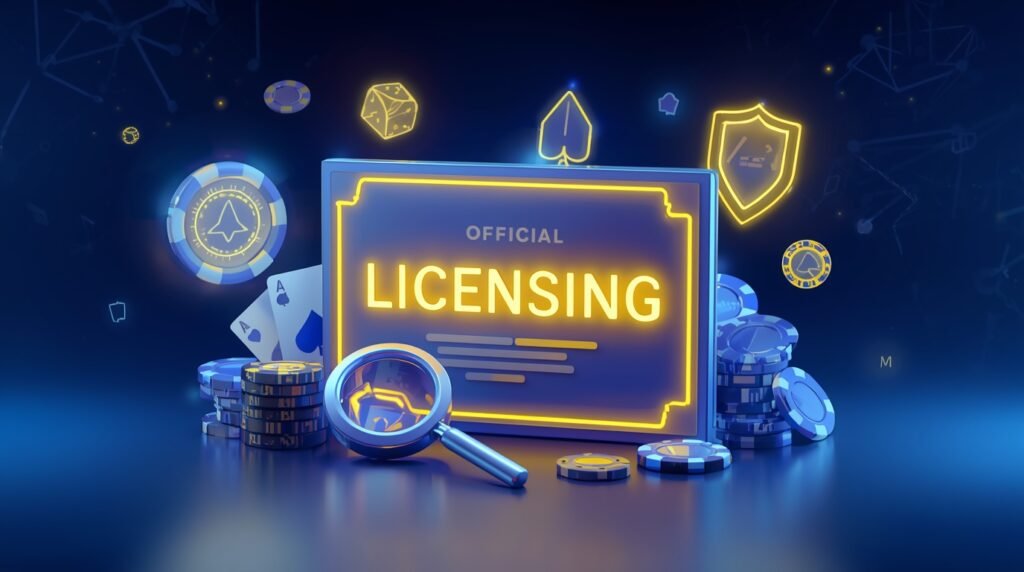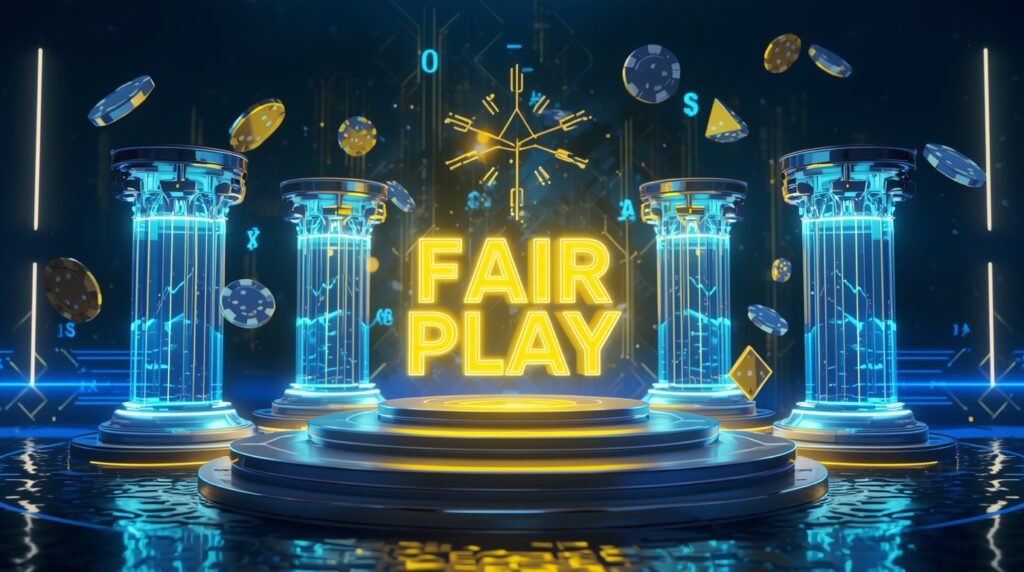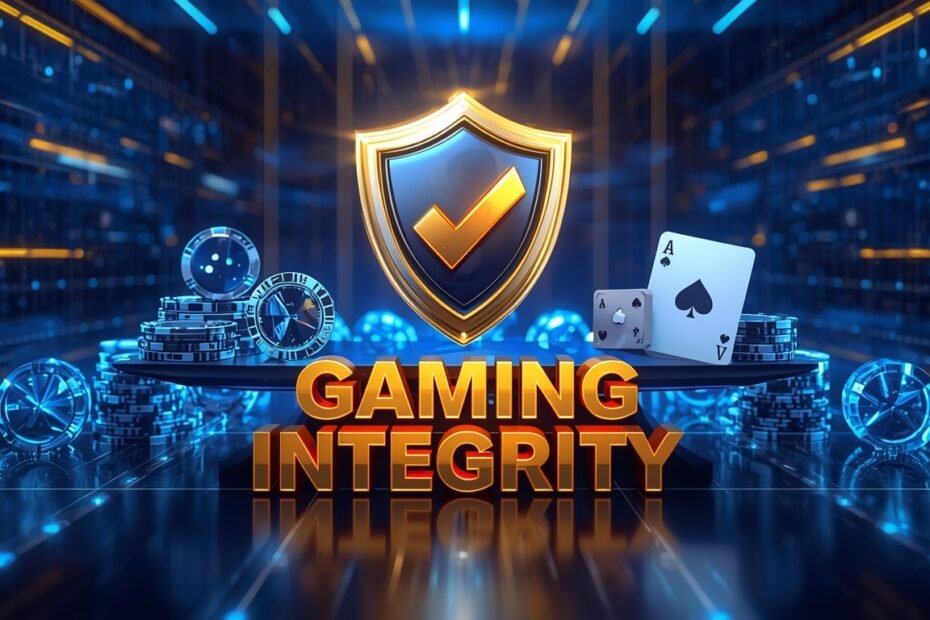Fairness in iGaming platforms is non-negotiable, players need to trust that every spin, roll, or card draw is genuinely random and that the advertised “return to player” (RTP) rates are accurate. Leading casinos accomplish this through a combination of transparent odds (high RTP), certified random number generators (RNGs), and strict regulation.
For example, BetFi an upcoming crypto-friendly casino platform has pledged that every game will pay back at least 95% of wagers over time, aligning with expert advice to choose slots with RTPs of 95% or higher. By committing to such high RTP floors and sourcing games from legit content provider and with RNG certificates, BetFi and other top iGaming platforms send a strong signal of fairness and trust to players.
Return-To-Player: The Heart of Fair Odds
Return-to-Player (RTP) is the theoretical percentage of total wagers that a game will pay back to players over the long run. A higher RTP means more favorable odds for players. Reputable operators always disclose RTP and often target high values: for instance, many online slots boast RTPs well above 95%. Industry guides explicitly recommend focusing on games with RTPs of 95% or more for the best odds.
Major providers illustrate this commitment to players. For example, NetEnt’s popular slots typically advertise RTPs in the 95–98% range, and Pragmatic Play notes an average RTP of about 96% across its games. These high-return games help maintain player confidence, since gamblers know over time they are getting a fair share of the stakes.
BetFi echoes this principle: it has stated that no game on its platform will fall below a 95% RTP. This policy not only exceeds many regulators’ minimums, but matches what experts consider a “fair” baseline. By capping its house edge, BetFi ensures players have a genuinely competitive chance of winning, which builds trust from the very first spin.
See Also: iGaming’s Rapid Evolution: Regulation, Tech, Growth
RNGs and Independent Testing: Ensuring Unbiased Outcomes
At the core of any online casino is the Random Number Generator (RNG), a software algorithm that produces unpredictable results for slots, card games, and more. A well-implemented RNG means each spin or deal is truly random and cannot be anticipated by players or the casino.
Technically, modern casino RNGs generate billions of outcomes per second, so that when you click “spin” the game simply selects the next random number as the result. This process ensures no pattern or manipulation: every outcome is independent and fair, giving players genuine confidence in each game round.
Because the RNG is so critical to fairness, online casinos rely on third-party auditors to verify it. Independent testing labs like eCOGRA, iTech Labs, and GLI rigorously inspect the RNG algorithms used by game software.
During this certification, specialists review the code, assess the random seed generation, and run extensive statistical analyses to confirm that results are uniformly distributed (no bias). In short, these auditors certify that the game’s RNG truly “plays by the numbers” and meets industry standards.
For example, eCOGRA explicitly notes that RNG testing “is crucial for ensuring the fairness and integrity of the games” and that RNGs must produce outcomes that are “both unpredictable and unbiased”. Once certified, games receive a compliance report or seal indicating they passed a badge of honor that casinos often display.
In practice, players can look for seals or mentions of RNG certification on the casino website to verify this testing. Casinos like BetFi commit to offering only RNG-certified titles, meaning RNG game has passed such independent checks.
As a result, players can be assured that no one (not the house, not hackers) can influence the spin. This transparency often accompanied by info pages explaining “we use eCOGRA/GLI-certified games” turns abstract algorithms into a concrete trust signal. In short, certified RNGs are the technical backbone of fair play, guaranteeing that each game’s outcome is as unpredictable and honest as it appears.
Licensing, Audits, and Regulatory Oversight of iGaming Platforms

Beyond technology, regulatory frameworks enforce fairness across the iGaming platforms. Legitimate online casinos must obtain gambling licenses from recognized authorities (e.g. Malta, UK, Curacao, Isle of Man) to operate legally. These regulators mandate strict standards, one of which is fair game play.
In practice, this means every licensed casino is required to use certified RNGs, display accurate RTPs, and handle player funds transparently. Casinos that fail these criteria face heavy fines or lose their license – a punishment that no operator can afford. In other words, obtaining a license is not just a formality, it’s a credibility stamp that tells players “we play fair or we pay the price.”
Independent audits are also a legal requirement in most jurisdictions. Regulators often demand proof that games were tested before launch and periodically re-tested. For example, eCOGRA and GLI provide RTP and RNG verification services, confirming that a game’s practical payouts match its theoretical design.
After testing, casinos publish the results or at least provide certification evidence on request. This dual system of licensing plus third-party certification ensures there are checks and balances: the casino cannot unilaterally decide odds or rig games without detection. In fact, industry insiders emphasize that “certifications verify correct RTP display, RNG integrity, and compliance with licensing regulations”.
Fabulous Ltd
Reputable aggregators also play a part. For instance, Fabulous Ltd (Fabulous Gaming) is a content aggregator that supplies games to casinos worldwide. This company is fully licensed in the Union of Comoros (License No. ALSI-192407057-FI3) and legally authorized for all games of chance.
By partnering with such aggregators, BetFi ensures every title is drawn from a vetting pool of certified, regulated games. These licensed providers must adhere to local laws (like anti-money laundering and player protection) so using them is another layer of fair-play assurance. In sum, when a player logs into a licensed casino with certified games, they can trust that multiple authorities and technical audits have already enforced integrity.
See Also: US iGaming Evolves: New Dynamics, Sustainable Growth
Top-Tier Game Providers and Aggregators
Every game on a casino site actually comes from a software provider, and the reputation of these studios is crucial. Leading developers (Evolution Gaming, Microgaming, Playtech, NetEnt, Pragmatic Play, etc.) build games with internal quality controls and often have their own licenses. Their slots and tables are delivered with known RTPs and have been independently tested.
For example, NetEnt’s portfolio (with hits like Starburst and Gonzo’s Quest) often advertises RTPs near 96%, and Pragmatic Play boasts average RTPs around 96% as well. These companies pride themselves on fairness because their brand depends on it.
Aggregators like Fabulous BV extend this by bundling games from dozens of top studios through a single API. This means BetFi (and other operators) can offer a huge library of games without developing them in-house.
Crucially, Fabulous and similar aggregators only include certified content providers, so the games arrive pre-vetted. By sourcing through such reputable channels, BetFi guarantees that no fly-by-night or “grey market” games slip through. In effect, the selection of content providers becomes another axis of trust: when you see well-known developer logos on a casino, it’s a signal that the games are subject to mainstream regulation and auditing.
BetFi’s Fair Play Promise
BetFi places fairness at the core of its platform. Even before launch, the team has highlighted several policies designed to protect players’ interests. Firstly, as mentioned, all casino games on BetFi will have RTPs of at least 95%.
This means that for every $100 wagered, players can expect on average to get back $95 in winnings, a much better rate than many land-based machines or low-end online slots. In fact, gambling experts explicitly advise players to “avoid playing slots with an RTP below 95%” if possible. BetFi’s policy ensures that players never have to worry about sneaky, low-return games, aligning with these best-practice standards.
BetFi also works with licensed aggregators and developers. Its announced collaboration with Fabulous BV (the Comoros-licensed aggregator) exemplifies this. Through Fabulous, BetFi will aggregate titles from established studios that already comply with international gaming regulations. These providers not only deliver high-quality graphics and engaging gameplay but also adhere to responsible gambling and security norms.
Together, these commitments make BetFi a model of fair play. By combining high RTP floors, certified RNGs, and licensed content, BetFi ensures players get the best odds and full transparency. Each of these elements alone (like an eCOGRA seal or a known provider’s name) boosts confidence, but BetFi bundles them.
Key Pillars of Fair Play in iGaming Platforms

- High RTP Percentages: Targeting games with high return-to-player values is fundamental. Casinos should focus on slots with RTPs in the mid-90s or higher, as this gives players a better theoretical chance of winning. BetFi’s 95% RTP minimum fits squarely within this expert advice.
- Certified RNGs: All game outcomes must stem from a robust Random Number Generator that has been audited by an independent lab. This ensures each round is “completely random and unbiased”. Certificates from eCOGRA, GLI, iTech, etc., prove to players that no one can predict or rig the results.
- Strict Licensing and Audits: Operating under reputable gambling jurisdictions (MGA, UKGC, etc.) forces adherence to fairness standards. Regulators require transparent operations, certified games, and fair handling of player funds. Unlicensed casinos lack these checks, so legitimacy and trust require proper gaming licenses.
- Reputable Providers and Aggregators: Partnering only with known game studios and aggregators means games come pre-verified. Content from Evolution, Microgaming, NetEnt, Playtech, Pragmatic Play and others is widely licensed and tested. For example, games from top providers are regularly audited and typically come with clear RTP info. Fabulous BV itself is a licensed aggregator, assuring the game library is safe.
- Transparency Tools: Many modern casinos use provably fair technology (especially for crypto games), which allows players to independently verify results. Moreover, displaying certification seals, audit reports, and clear game rules (including RTP) helps build trust. Communication about fair gaming practices – such as dedicated “Game Integrity” pages or footer logos – is now considered a best practice for player reassurance.
By combining these pillars, casinos create a bulletproof framework for fairness. Each pillar reinforces the others: for instance, even a high-RTP game would be meaningless if its RNG wasn’t audited. The leading platforms, BetFi included therefore implement all of them together to ensure integrity at every level of the user experience.
Conclusion
In the competitive iGaming market, integrity and fair play are everything. Players demand assurance that their favorite casinos are not manipulating odds behind the scenes. The industry’s answer to this demand has been a multi-layered approach: high RTP games, rigorously certified RNGs, licensed operations, reputable providers, and even provably fair tech. All these measures converge to guarantee that what players see is what they get.
BetFi exemplifies this new standard. By deciding to offer only 95%+ RTP games, sourced from licensed providers through vetted aggregators, and backed by RNG certifications, BetFi is aligning itself with the best players’ interests.
In short, BetFi’s model incorporates every recommended practice: it’s fully compliant with regulators’ “fairness” mandates, meets or exceeds expert RTP guidelines, and partners only with industry-trusted content suppliers.
For players, this means that each BetFi game session can be enjoyed with confidence. Every pull of the lever or click of “roll” carries the backing of technical audits and official licenses.
Game integrity is not just a hype at BetFi, it’s a foundational promise, as it should be for any reputable casino. With these safeguards in place, BetFi and similar iGaming platforms are proving that fair play is indeed the truth behind the games, ensuring players can have fun knowing the games are on the level.


